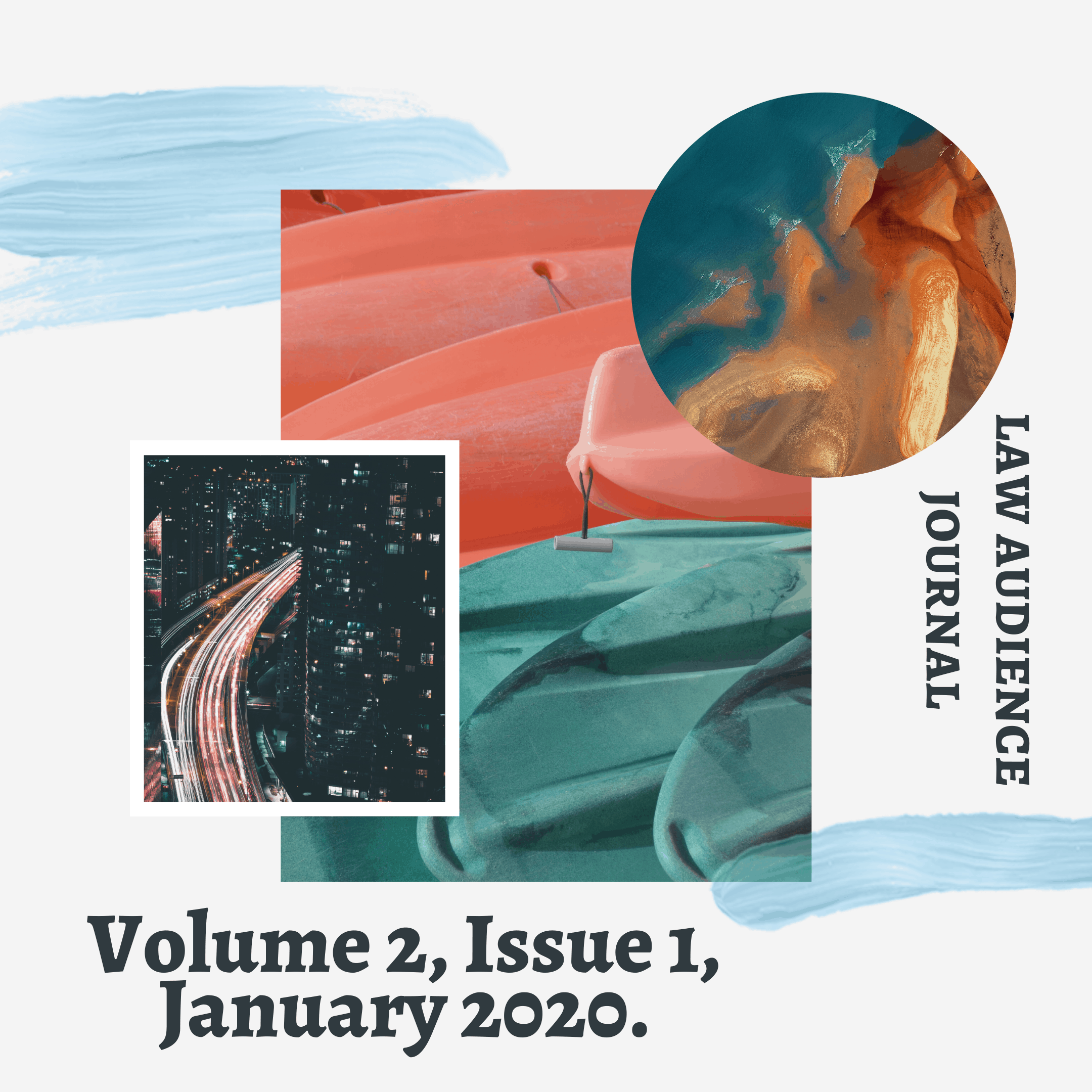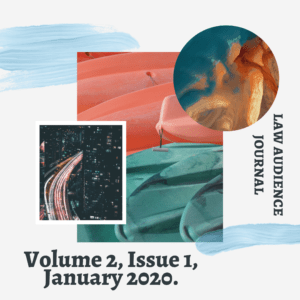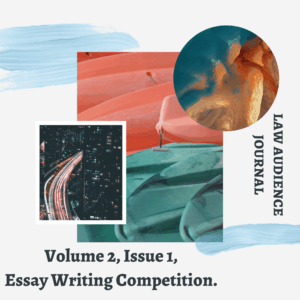Authored By: Ms. Anshu Sharma, Co-Authored By: Mr. Sarthak Sangwai, Hidayatullah National Law University.
I. INTRODUCTION:
“Citizenship is a legal bond which a citizen has with its nation, any amendment brought to it by the Government without the assent of the other party i.e. the citizen, would be a like breach of the contractual obligation that a nation has with its citizen as the citizen is a legal member of its country. The ‘citizenship’ is often treated to be synonymous to ‘nationality’ is not completely same where the dictionary meaning of citizenship is a member of a political community who enjoys the rights and assumes the duties of membership.[1] In the present contract, the Government provides the citizens with certain privileges such as, few Fundamental rights which are provided particularly to the citizens[2][3][4][5][6] and on the other hand the consideration which the citizens give to the nation are in the form of the Fundamental duties and the various other duties which the Constitution casts on its people to respect abide to.[7] In this Article The Citizenship Amendment Act is discussed along with its effect over the country and in the end it’s concluded what could be the potential outcome of such a humongous step taken by the NDA Government.”
II. CITIZENSHIP AMENDMENT ACT, 2019-PRO’S AND CON’S:
In India, citizenship was conferred via the Citizenship Act, 1955, where it could be acquired by five ways which are: Citizenship by birth, Citizenship by descent, Citizenship by registration, Citizenship by naturalisation, Citizenship by incorporation of territory.[8] Part II of the Constitution i.e. article 5- 11 deal with the citizenship. The Citizenship Amendment Act, 2019 has both positive as well as a negative impact on the citizens of the country. As Mahatma Gandhi has said, “Silence becomes cowardice when the occasion demands speaking out the whole truth and acting accordingly.” The negative impacts led to a huge countrywide protest in different cities and towns against the amendment brought in by the Government.
With a huge confusion being building up amongst the people, created a rage amongst the citizens and Government had to order Internet shutdowns and curfew orders and Section 144 being implied in most of the parts of the countries, the college students protesting against the move of the government were ill-treated.[9]
Citizenship is important as it gives a sense of oneness with the nation and eliminates statelessness, where an individual may be destitute of nationality due to his/her own choice or because of no fault of his own,[10] some stateless constitute refugees which are forced to enter the other nation due to the religious persecution which is faced by them in their own country just like the Non-Muslims present in Islamic countries.[11] In the present world population, around 12 million people are stateless,[12] out of which a huge number of individuals constitute of refugees but not all of them.[13]Also the Article 15 of the Universal Declaration of Human Rights states that everyone has a right to nationality and that and no one should be arbitrarily deprived of the nationality and there should be no denial to change the nationality There is a right present with the individual to be free from the arbitrary deprivation of citizenship, where a state is bound to work beyond the legal bond with its citizen towards the preservation of human rights.
The Keshvanand Bharti case[14], outlined the basic structure doctrine, according to this case the Preamble was a part of the constitution and an amendment can be brought into the Constitution without any hindrance to the goals which are enshrined in the Preamble of the Constitution and the amendment can be brought into it if, 1. Intelligible differentia is present in the matter and 2. There is some rational nexus which can be drawn with the ultimate goal which is ought to be achieved by the constitution framers.
The intelligible differentia in this amendment can be the people of the three countries i.e. Pakistan, Bangladesh and Afghanistan and the rational nexus drawn is the religious persecution which is faced by the Non-Muslims in these Muslim dominated countries.[15] Here, according to the amendment brought the refugees who have entered the territory of India without any legal document or maybe an illegal migrant.
The differentia made here between the Muslim and Non- Muslim goes against the basic structure of the constitution which is Secularism. The dictionary meaning of the term Secularism is “indifference to, or rejection or exclusion of, religion and religious considerations”.[16]
In the CAA, 2019 the differentiation on the basis of religion is absurd and choosing member of particularly three countries i.e. Pakistan, Bangladesh and Afghanistan is also unreasonable as there are many members of other countries such as the Tamil’s from Sri Lanka or the Buddhists from Nepal who are facing religious persecution and the special privileges given to the Non-Muslims of Pakistan, Afghanistan and Bangladesh and putting them into one category where, such Hindus, Sikhs, Buddhists, Jains, Parsis, and Christians are treated especially the requirement to live in the territory for 11 years is reduced to 5 years and leaving the rest which is the Muslim, is biased against the left-outs and is inappropriate and against the rights given by the Constitution of India.[17]
III. SECULARISM AT STAKE?
India is a nation which is famous for its unity in diversity and then dividing the nation on such communal basis is against the idea of Secularism which was perpetuated by the constitution-makers, even though the term Secular was added later[18] in the year 1972, yet the prevalence of the word exists without the term being actually present. The anger which was hitherto contained by the people of the country burst out when secularism was brought at stake and somehow the CAA has given an idea that India is the home of the Hindus and the Muslims are the outsiders which has a potential of dividing the nation on a communal basis.[19] The notion of the Act is considered to be anti-Muslim.[20]
IV. POPULATION SPLURGE:
The impact of such inclusion of such population into the current population of India would add up to its population. India is the second most populated country in the world.[21] With its population being around 133.92 crores. According to the data presented by the home ministry, there are around 2-3 lakh stateless people in India currently.[22] Adding these stateless people into the population of India would increase the population of India furthermore, with the falling GDP of India the step to increase its population would not be a great step by the Government. The act also fails to explain the fact that how these enlisted people who would be given citizenship would be of no threat to the nation.[23]
V. CONCLUSION:
This Article can be concluded with a hope that the Citizenship Amendment Act, 2019 which was a step taken by the Government of India as an act of humanitarian measure, is far from its goal which was ought to be achieved whereas it will have adverse impact on the size population of the country, also amongst the notions which prevail amongst the people of the country as this step is no less than a ridicule to the ideologies which were propagated by the constitution framers which include Equality and Secularism being the pillars of the Indian diversity. India being so diverse yet being so unified is because of these pillars any amendments brought to them would shake the people’s faith.
The adverse effects include the population splurge, mockery of secularism, differentiating people no rational basis hence ridiculing the equality given to the people by the Constitution.
As it has been said in the book The Rules for Radicals, if you want to put a community down just ridicule it, in the same manner, the Muslims are being put down via this act. The population upsurge would work as the vote banks for the Government but would not help in making the nation great.
[1] Leydet, Dominique, “Citizenship”, The Stanford Encyclopedia of Philosophy (Fall 2017 Edition), Edward N. Zalta (ed.), <https://plato.stanford.edu/archives/fall2017/entries/citizenship/>.
[2] INDIA CONST. art. 15.
[3] INDIA CONST. art. 16.
[4] INDIA CONST. art. 19.
[5] INDIA CONST. art. 29.
[6] INDIA CONST. art. 30.
[7] Government of India, Report: National Commission to Review the Working of the Constitution, Volume II, p 373 (Ministry of Law, Justice and Company Affairs, 2001).
[8] India: Act No. 57 of 1955, Citizenship Act, 1955, Dec 30 1955, https://www.refworld.org/docid/3ae6b57b8.html.
[9] Prasanna Mohanty, CAA & NRC II: Here are the myths and facts about all-India National Register of Citizens, BT, Dec. 24, 2019.
[10] Wilkinson, W.E., International Law Notes, Vol. 1, Feb 1916, at 26.
[11] Atul Nanda, The Indian Express CAA neither redresses ‘errors’ of Partition nor does it address religious persecution, it attacks secularism, IE Online Media Services Private Limited, Dec 27, 2019, https://indianexpress.com/article/opinion/columns/caa-protests-citizenship-amendment-act-amit-shah-bad-in-law-poor-in-history-6186432/.
[12]UN high Commissioner for Refugees (UNHCR), Report of the United Nations High Commissioner for Refugees, A/52/12, 1997, https://www.refworld.org/docid/3b00f216.html. Here, according to the amendment brought in the refugees who have entered the territory of India without any legal document tan
[13] JEREMIAH SMITH, JR., CHILDREN WITHOUT STATE: A GLOBAL HUMAN RIGHTS CHALLENGE 90, (Jacqueline Bhabha, 2011).
[14] Kesavananda Bharati Sripadagalvaru and Ors. v. State of Kerala and Anr. (1973) 4 S.C.C. 225 (India).
[15] supra at 10.
[16]Merriam-Webster.com. 2011, secularism, https://www.merriam-webster.com/dictionary/secularism.
[17]INDIA CONST. art. 14 (which is the right to equality).
[18] INDIA CONST. amend. 42, § Preamble.
[19] Mihir Desai, Achin Vanaik, India, Secularism and Citizenship: Why we Must fight against the CAA and NRC (Dec. 31, 2019, 10:00 PM), http://www.europe-solidaire.org/spip.php?article51640.
[20] Parry Wera, Exclusion of Muslims not the only reason CAA should be opposed, TOI, Dec. 20, 2019.
[21] “”Overall total population” – World Population Prospects: The 2019 Revision” (xslx). population.un.org, United Nations Department of Economic and Social Affairs, Population Division.
[22] Vishwanath Apurva, Firaque Kabir, Explained: What is Citizenship Amendment Act?, TIE, Dec. 25, 2019.
[23] Parry Wera, Exclusion of Muslims not the only reason CAA should be opposed, TOI, Dec. 20, 2019.


